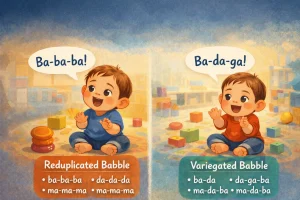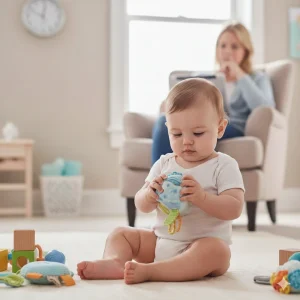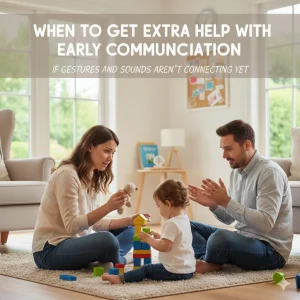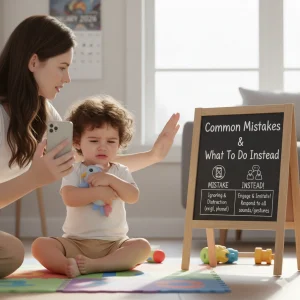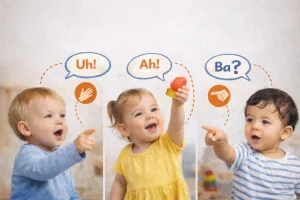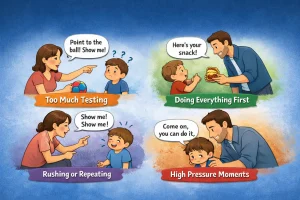Home Speech Therapy: Fun Action Word Activities for Kids
By Wellness Hub
Last Updated: February 9, 2024
Get ready to move and learn with ‘Action Adventures,’ an engaging activity that introduces young children, including those with Autism and special needs, to action words or verbs. This dynamic exercise combines physical activity with language learning, offering a playful way to enhance verbal skills and active participation. It is good to see them learn the words for the actions they do daily. Our home-based speech therapy activities would guide you to teach them in an actively engaging way.
Free Speech Help for Kids
Concerned about speech delays? Book a free consultation with our expert speech therapist and get guidance tailored to your child’s needs.
The Importance of Understanding Action Words:
Learning action words is fundamental in developing a child’s language skills. By associating physical movements with words, children not only expand their vocabulary but also improve their understanding of how to express and interpret actions in everyday life.
Teaching kids action words, or words that describe things we do, is really important for helping them learn to talk well. When they connect these words with the actions they see and do, it helps them learn more words and understand how to talk about what’s happening around them. So, it’s like helping them build a toolset of words to talk about all the things they do and see every day!
Detailed Activity: “Action Adventures”
Choosing Actions:
- Selection: Start with simple verbs that are part of your child’s daily routine, like ‘sit,’ ‘walk,’ ‘eat,’ and ‘sleep.’
- Relevance: Choose actions that are familiar and easy for your child to understand and perform.
Demonstrating Actions:
- Active Learning: Show each action to your child and clearly articulate the associated word.
- Imitation: Encourage your child to mimic the action and repeat the word.
Turning It into a Game:
- Engagement: Make learning more fun by integrating actions into playful activities like walking around the room or clapping hands.
- Interaction: This method keeps the activity lively and encourages your child to participate actively.
Using Visual Aids:
- Visual Learning: Use picture books or flashcards that depict different actions. Ask your child to perform the actions shown.
- Reinforcement: This helps reinforce the understanding of verbs through visual cues.
Playing ‘Simon Says’:
- Listening Skills: Incorporate a game of ‘Simon Says’ using action words to enhance listening skills and response to verbal commands.
- Fun and Learning: This variation is both enjoyable and educational, providing a creative way to practice verbs.
Addressing Potential Challenges
Difficulty in Performing Actions:
- Solution: Start with very simple actions and gradually introduce more complex ones as your child becomes comfortable.
Limited Attention Span:
- Solution: Keep each session short and lively. Use a variety of actions to maintain interest.
Physical Limitations:
- Solution: Adapt the actions to suit your child’s physical abilities, ensuring they can participate fully and safely.
Interactive Learning Apps for Toddlers
We have developed interactive app such as BASICS that are like friendly companions for your child, making the process seamless and enjoyable. They’re packed with all sorts of interesting things that help your toddler. Our Speech Basics App has a section named “Actions” that teaches different kinds of action words, with example pictures. A clear pronunciation of the action words, along with a couple of example sentences, explains it well. The “Spinners” section in Autism Basics app helps the kid recall the learned words.
Conclusion:
Make Action Adventures an exciting and encouraging experience. Celebrate your child’s efforts in imitating both actions and words. Regular practice will enhance their familiarity with different verbs and encourage physical activity. Embark on this active learning journey and enjoy the blend of movement and education.
Frequently Asked Questions:
1. Why are action words important for my child’s speech development?
Action words help children connect daily movements with language. Learning verbs like sit, eat, and play builds vocabulary and supports clear communication.
2. How can I teach action words at home in a fun way?
You can turn learning into a game by acting out verbs, playing “Simon Says,” or using flashcards. Children learn faster when they see and do the action.
3. What action words should I start teaching first?
Begin with simple, everyday actions such as walk, sleep, eat, and clap. These are familiar to your child and easy to copy.
4. How does playing games like ‘Simon Says’ help with speech?
“Simon Says” improves listening skills, encourages children to follow directions, and makes learning verbs interactive and fun.
5. Can children with autism learn action words through these activities?
Yes. Action-based speech therapy activities are especially effective for children with autism because they connect physical movement with language learning.
6. What if my child has trouble copying the actions?
Start with very simple actions, demonstrate slowly, and encourage small steps. Celebrate every attempt to keep your child motivated.
7. How do visual aids support action word learning?
Picture books, flashcards, or apps with images of actions make it easier for kids to understand and remember verbs by linking pictures with real-life actions.
8. How long should an action word activity last?
Keep sessions short—about 5 to 10 minutes. Short, playful practice keeps children engaged and helps them stay focused.
9. Are there apps that teach action words for toddlers?
Yes. Apps like BASICS include sections on action words, clear pronunciation, and fun games to help children recall verbs.
10. How do I know if my child needs speech therapy for action words?
If your child struggles to name or copy common actions by age 2–3, or avoids talking about what they do, it’s best to consult a speech therapist for guidance.
Book your Free Consultation Today
Parent/Caregiver Info:
Client’s Details:
* Error Message
